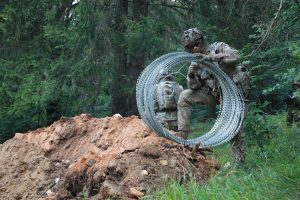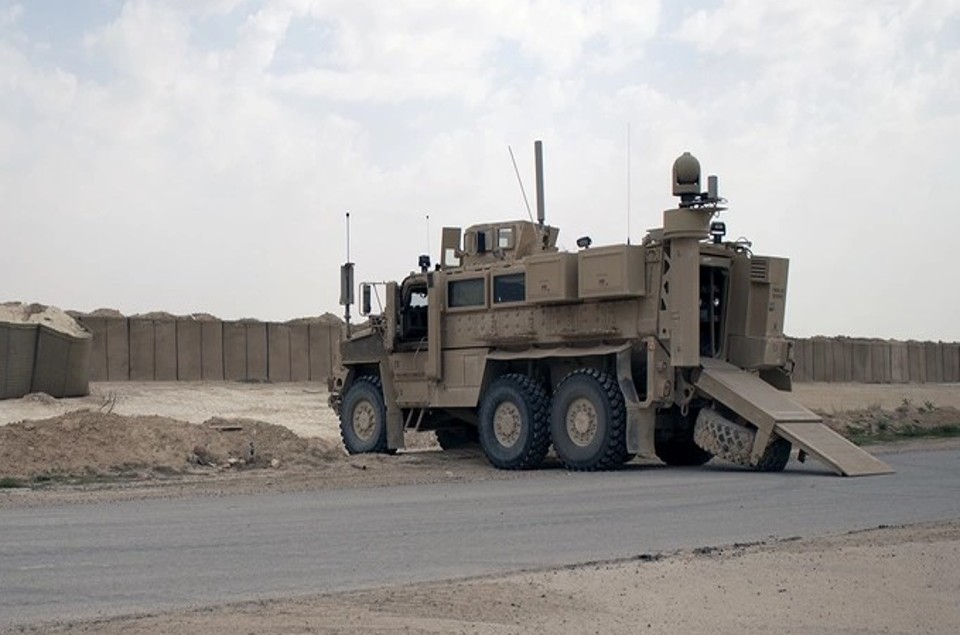Objective Empathy: The Key to Helping Those in Personal Crisis

My platoon was about to depart for our multi-day Platoon Live Fire training exercise, and everything was ready: our plan, our equipment, our mindset. Just as we were going to leave, one of my Soldiers, who was the heart of our platoon and critical to our success, received a phone call notifying him that his fiancée was in the hospital. As the Platoon Leader, I faced a decision between the welfare of my Soldier and the overall effectiveness of the unit.
Regrettably, you will likely face a similar situation or challenge at some point in your career as an Officer. Your reaction to situations like this will impact not only how the immediate situation resolves, but also the mental and family outcomes for the individual in crisis. To take effective action, you must understand and balance two elements: an empathetic response in the moment and an objective response to resolve the situation. Striking this balance is challenging, but finding the right blend for the situation will have a profound impact on both your Soldiers and the effectiveness of your unit.
What is Empathy, and Why is it Important?
Empathy, the ability to understand and share the feelings of another, is often misconstrued in military circles as weakness or being overly emotional. However, it is a vital tool for leaders, as the ability to perceive and understand others’ feelings one of the most effective ways you can show that you care. By properly understanding how to use empathy as a leadership tool, you can enhance your ability to lead through the myriad adversities of military training and life. A social science study at Stanford found that in times of distress, the quality we look for in others is not support or compassion, but empathy[1]. Psychologist Paul Ekman describes three unique types of empathy- Cognitive, Emotive, and Compassionate. Knowing how to use them will help you adopt the right body language, tone, and demeanor in your response to show the appropriate level of emotion for the situation.
Empathetically engaging your Soldiers shows that you care for and value them. This builds trust, which COL Mitch Butterworth broadly describes as a “psychological state involving positive expectations about another’s motives with respect to oneself in situations involving risk”[2]. When you build trust, you increase the morale in your unit and create a sense of belonging that enables your formation to lean on each other in difficult times, especially in times of risk. Both on patrol and in garrison, those connections make a difference- up to and including mission success. By showing concern for your Soldiers’ needs, you can empathetically engage your subordinates and build trust. Consider how the opposite is also true: what does a non-empathetic response say to your subordinates? Place yourself in your Soldiers’ shoes and ask how you would want your leadership to respond if you were the one in crisis- the way you act will have a profound impact on the morale and effectiveness of your team.
Making it Happen: Objectively Leveraging Resources in a Crisis
Knowing how to respond with empathy to a crisis does little if you can’t positively influence its outcome. As a PL, you are most likely the first Officer in the Chain of Command. To help your Soldiers effectively, you must educate yourself on the resources available. To start, connect with the Chaplain, AER program manager, and ACS representative. Build your Soldiers’ empathetic capacity by sending them to training such as Master Resiliency Trainer or Army Family Team Building and use these skills in your unit’s training. Understand the programs that the Army spends millions of dollars on- everything from flights home on Christmas to higher-consequence situations like supporting Gold Star families or the new 988 Lifeline for those experiencing suicidal ideations. Learning about these resources prior to needing them is an investment that will pay enormous dividends for the rest of your Army career.
Putting these skills into practice requires a unique balance of empathy and objectivity. There is no single best way, as you must consider branch, echelon, personalities, and experience, among others. As the leader, you should strive toward what is best for the Soldier, which you learn from empathetically understanding the individual and the situation. However, remaining objective requires that we cannot always give them exactly what they want. Know that as the first Officer in the Chain of Command, you will likely have the greatest impact for better or for worse. By applying yourself empathetically yet objectively at the point of friction, you can bring about the best-case resolution to the situation.
Bringing it Together: What can Objective Empathy do for You?
In the case of my Soldier with the family emergency, the way we immediately connected with him and got him to his family allowed him to both care for his loved ones and function as an effective member of the Platoon upon return. We successfully executed the Live Fire without him, but the even greater success was the environment in our unit afterward. Down to the last man, everyone knew their leadership would take care of them. As the training cycle intensified, we leaned on our trust in each other to navigate the long nights, difficult missions, and our Brigade-level airborne operation into JRTC. Our actions that one night before the Live Fire, striking the right balance of empathy and objectivity, made all that possible and continued to pay dividends for months and even years afterward.
In your career, there will be countless situations like this one that will require junior leaders to take immediate and decisive action. It will not be easy, but it will be worth it. The Army needs leaders who can build trust and balance the needs of the mission with the needs of their Soldiers- I hope this article helps prepare you to be one of those leaders.
CPT John Goetz is a Civil Affairs Officer in the 96th Civil Affairs Battalion (SO)(A). A native of northern Pennsylvania, he commissioned as an Infantry Officer from the United States Military Academy in 2016. He is a graduate of the US Army Jumpmaster and Master Resiliency Trainer courses, as well as multiple Special Warfare courses. He lives in Fayetteville, NC with his wife Hailey and son Ezra. He can be reached on LinkedIn or on global.
Image source: two soldiers comforting – Brenda Everson-Shaw https://www.brendaeverson.com/may-2018/two-soldiers-comforting/
[1] Morelli, et al. “Empathy and well-being correlate with centrality in different social networks”. PNAS, vol 114, no. 37 (2017).
[2] Butterworth, M. (2023, September 15). “Building Trust in an Age of Distrust”. The Center for Junior Officers. Retrieved February 24, 2024 from https://juniorofficer.army.mil/developing-trust-in-an-age-of-distrust/
Related Posts

Fighting as an Enabler Leader
(U.S. Army Photo by Cpl. Tomarius Roberts, courtesy of DVIDS)Enablers provide capabilities to commanders that they either do not have on their own or do not have in sufficient quantity …

Defeating the Drone – From JMRC’s “Skynet Platoon”
If you can be seen, you can be killed—and a $7 drone might be all it takes. JMRC’s Skynet Platoon discuss their TTPs to defeat the drone.

3 Deployments Before Captain: Reflections From Down Range
Deployments challenge junior officers beyond their primary duties, often demanding adaptability, wellness management, proactive leadership, and moral integrity maintenance.
